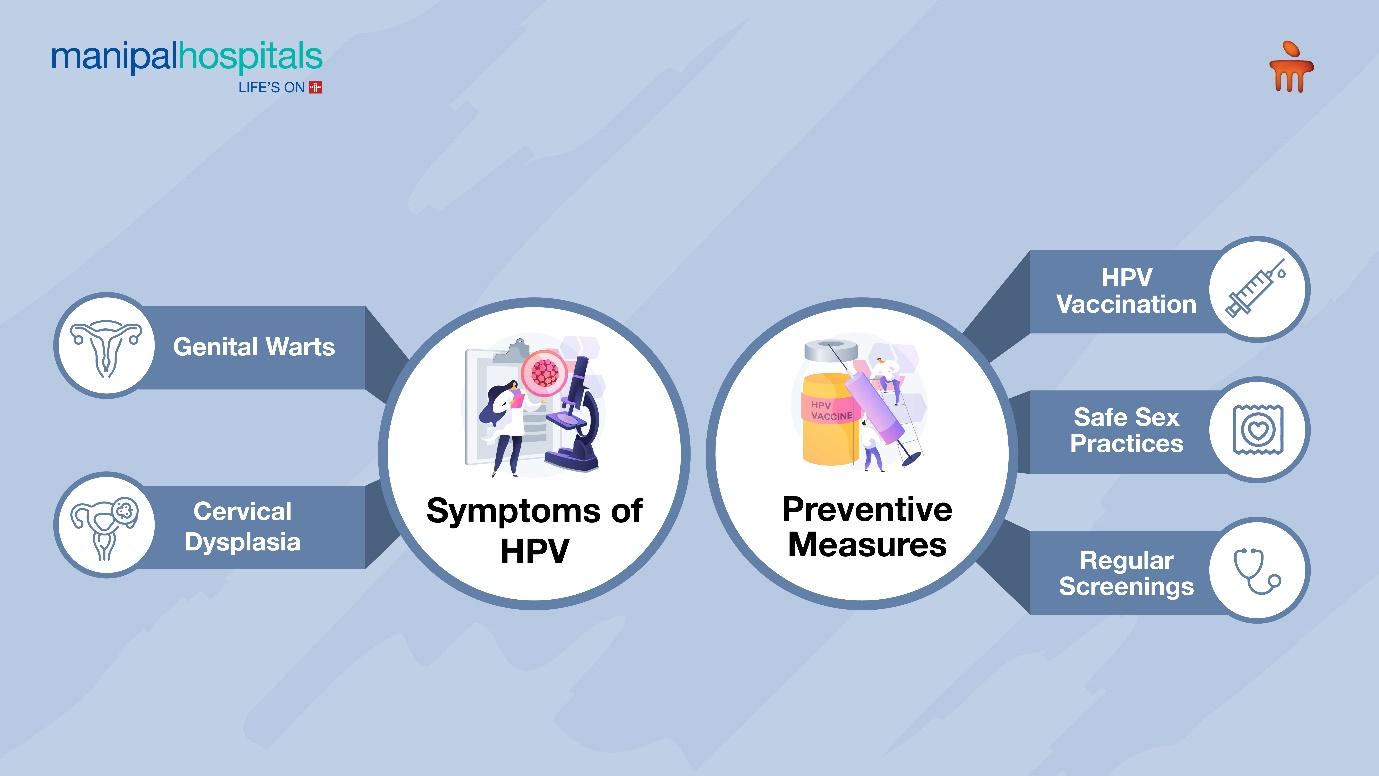
Did you know that cervical cancer is the fourth most common cancer in women? Approximately 660,000 new cases and 350,000 deaths occurred globally in 2022, according to the World Health Organization. This common yet often misunderstood virus affects a significant portion of the population. Let's delve into the symptoms and causes of HPV to better understand its impact on our health.
Synopsis
What is HPV?
HPV human papillomavirus is a group of more than 200 related viruses, each with its unique characteristics. Some strains are relatively harmless and cause common skin warts on hands and feet. However, certain strains can lead to serious health issues, such as cervical cancer and other genital cancers. But how does this virus spread and manifest in our bodies? Let’s understand this.

Causes and Transmission of HPV
HPV is a highly contagious virus primarily transmitted through skin-to-skin contact during sexual activity. This can be transmitted through vaginal, oral or anal sex.
In some rare cases, a pregnant woman with HPV can transmit the virus to the baby during delivery. Through this, the child may develop a condition called recurrent respiratory papillomatosis, in which HPV-related warts form inside the throat or airways.
The Connection Between HPV and Cancer
Most HPV infections resolve on their own. However, persistent infection with certain high-risk strains can lead to cancer development. These strains are responsible to develop a significant number of cervical cancers, with type of cancers, including penile, anal, vaginal, and vulvar cancers. Also, it could lead to some head and neck cancers.
What are the potential symptoms of HPV?
Human papillomavirus infection symptoms can vary greatly depending on the strain. While some people may never show signs of infection, others might develop warts or even precancerous lesions. Here's a summary of symptoms to be aware of:
-
Genital Warts
This is the most common symptom of HPV infection. These warts may present as flat lesions, small cauliflower-like bumps, or tiny protrusions. It can develop on the genitals, anus, or mouth and throat area. They are usually painless but might cause itching or discomfort.
-
Cervical Dysplasia
Certain HPV strains can cause abnormal cell changes on the cervix, known as cervical dysplasia. This is usually asymptomatic but can be detected through routine Pap smears. Early detection and treatment of cervical dysplasia are crucial in preventing cervical cancer.
What are the Preventive Measures?
HPV is highly transmitted, but there are effective ways to prevent HPV infection and its associated health problems. Some of them are listed below:
-
Human Papillomavirus Infection Vaccine: Vaccination is the most effective way to prevent HPV infection. The HPV vaccine is recommended for both males and females starting at the age of 11 or 12 and can be given up to age 26.
-
Safe Sex Practices: Consistent and correct condom use can significantly reduce the risk of human papillomavirus infection transmission.
-
Regular Screenings: Women should undergo regular Pap smears to detect cervical abnormalities early. One should also be aware of any unusual symptoms in the genital area and seek medical evaluation if necessary.
Understanding HPV and its implications is crucial for maintaining our health for both men and women. It is important to stay informed and take preventive measures like vaccination, safe sex practices, and regular screenings. We can significantly reduce the impact of this pervasive virus by incorporating these precautions into our health routine. While this blog provides a general overview, it's advised to consult a healthcare professional for personalised guidance. Discuss HPV testing options and other human papillomavirus infection treatment details with our top Gynaecologist in Kolkata at Manipal Hospitals Salt Lake.
FAQ's
The HPV vaccine is the best way to prevent HPV infection and the health problems it can cause. Getting vaccinated is recommended for preteens at ages 11 or 12, but it can be given up to age 26. Beyond that age, you can still take it after discussing it with a gynaecologist.
HPV is mainly spread through sexual contact. While it's possible to spread it through skin-to-skin contact in other areas.
Generally, HPV is not considered as an independent risk factor. However, they can be a secondary cause along with other STDs, which could lead to fertility issues. Regular screenings are key.
Yes, the HPV vaccine is very safe and also it is highly effective. Millions of people have received it with no serious side effects.
The most common side effects are mild, such as soreness at the injection site.



















 3 Min Read
3 Min Read


















